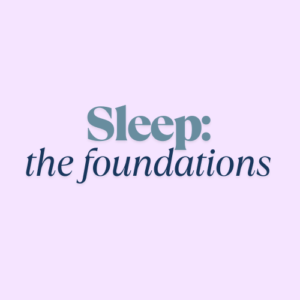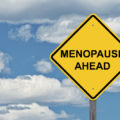
Sleep: the basics
We are spending some time talking about the 4 Pillars of Health: sleep, nutrition, exercise and stress management. To begin with, we’re focusing on sleep. I thought it would be a good idea to get into the basics to begin with. We’ll discuss why sleep is important, the phases of sleep and the potential effects of not enough sleep.
You’ve probably heard it a hundred times: “You just need more sleep.” But let’s be real—when life gets busy, sleep is usually the first thing we cut. Whether you’re up late doomscrolling, binge-watching a show, or just tossing and turning, it all adds up to one thing: your body not getting what it desperately needs.
Because here’s the spicy truth: good sleep isn’t a luxury—it’s essential. It’s your body’s nightly reset, healing, recharging, and housekeeping all wrapped into one package.
Why Is Sleep So Important?
Sleep is one of the most underrated pillars of health, but it is not to be discounted. Sleep is when your body does all the behind-the-scenes work to keep you feeling human. While you are sleeping, your body is recovering and repairing after the day you just had and getting prepared for another day to come. Let’s break down what’s happening while you’re curled up in bed:
1. Brain Clean-Up & Memory Filing
During sleep, especially in deep and REM stages, the brain activates the glymphatic system. This is essentially the “washing machine” or “cleaning crew” of the brain. This system flushes out waste products that are produced during wakefullness, including beta-amyloid—a sticky protein associated with Alzheimer’s disease.
No sleep = brain clutter = slower thinking, poor memory, and long-term cognitive risk.
Also: ever feel like everything you studied the night before magically sinks in overnight? That’s memory consolidation—where your brain files new knowledge and emotional experiences into long-term storage. No sleep, no filing system.
2. Nervous System Reset
Your autonomic nervous system (which regulates things like heart rate and stress responses) switches gears during sleep. The sympathetic system (fight or flight) powers down, and the parasympathetic system (rest and digest) kicks in. This is when your heart rate slows, blood pressure drops, and stress hormones like cortisol decrease. It’s literally your body’s wind-down time.
If you’re not sleeping well, your body stays in a low-level state of stress—even if you feel “fine.” This chronic activation is a fast-track to burnout, anxiety, and hormonal chaos.
3. Cellular Repair & Hormone Balancing
Deep sleep is crucial for physical recovery. The body releases growth hormone (GH), which triggers repair of muscles, tissues, and bones. It’s also when your immune system ramps up the production of cytokines—proteins that fight infection and inflammation.
Sleep is also tightly linked to hormonal balance. Here’s what just one bad night does:
- Increases ghrelin (hunger hormone)
- Decreases leptin (satiety hormone)
- Elevates cortisol (stress hormone)
- Impairs insulin sensitivity (increases blood-glucose levels and risk of diabetes and heart disease)
- Reduces production of melatonin and serotonin (affecting mood and circadian rhythm)
That’s why sleep-deprived people often feel hungry, irritable, anxious, and bloated. It’s not in your head—it’s in your hormones.
The Phases of Sleep
Sleep isn’t just one long snooze—it’s a complex, structured cycle that repeats every 90–120 minutes throughout the night. Each cycle has 4 key stages, and all are essential.
Stage 1: Light Sleep (NREM 1)
- Duration: 1–7 minutes
- Brain waves shift from beta (alert) to alpha and theta (relaxed)
- Muscles start to relax, breathing slows
- You’re easily woken and might even experience that sudden falling sensation (hypnic jerk)
This is the “dozing off” stage where the brain is deciding if it’s ready to commit to rest.
Stage 2: Deeper Light Sleep (NREM 2)
- Duration: 10–25 minutes per cycle
- Body temp drops, heart rate and breathing continue to slow
- Brain activity features sleep spindles and K-complexes (brief bursts of activity that help protect sleep and support memory)
This is where we spend about 50% of the night—it’s not the deepest rest, but it’s still restorative.
Stage 3: Deep Sleep (NREM 3 or Slow-Wave Sleep)
- Duration: 20–40 minutes early in the night, less as sleep progresses
- Dominated by delta waves—slow, high-amplitude brain waves
- Blood flow shifts to muscles and tissues, immune function is activated
- Growth hormone is released for repair
- Hard to wake someone here—they’re out cold
This is the most physically restorative part of the night. Less deep sleep = poor recovery, more inflammation, and weakened immunity.
Stage 4: REM Sleep (Rapid Eye Movement)
- First REM cycle starts ~90 minutes after sleep onset, increasing in length with each cycle
- Brain activity becomes almost as active as when you’re awake
- Breathing and heart rate increase, body becomes temporarily paralysed (to prevent you acting out dreams)
- Most dreaming occurs here
REM is essential for emotional processing, learning, and creativity. It’s where your brain makes sense of your day and even helps solve problems while you sleep.
What Happens When You Don’t Get Enough Sleep?
So, now we know about the importance and stages of sleep. Let’s summarise this by looking at what happens when you don’t get enough sleep. Skipping on quality sleep (or quantity) can feel like a hangover without the fun. But it also chips away at your health over time in sneaky ways:
- Cognitive Fog: Reduced attention span, poor memory, slower reaction times
- Blood Sugar Issues: Impaired insulin sensitivity increases diabetes risk, keeps you on that blood-sugar rollercoaster affecting energy, hunger and weight
- More Pain: Sleep deprivation amplifies physical pain and lowers your pain threshold
- Mental Health Slump: Increases risk of anxiety, depression, and mood swings
- Weaker Immunity: Fewer cytokines = more colds, flus, and slow recovery
- Heart Stress: Chronically short sleep is linked to higher blood pressure and heart disease
- Fatigue & Cravings: Poor sleep throws your hunger hormones out of whack, leading to sugar cravings and overeating
Chronic sleep deprivation (anything under 6 hours a night) has even been classified by some experts as a form of low-grade systemic inflammation. Aka, sleep deprivation is an upstream driver of nearly every chronic illness.
Let’s sum this all up
I know that there is a lot of information there to process. Good sleep is incredibly underrated for our short and long-term health. Whether you are trying to hit goals such as running a marathon or lifting a new PB. Or if you just want to be able to get through a work day with a clear mind and good focus, avoiding the brain-fog, then your sleep is something to seriously look at.
I’ll be back soon with my next blog and I’ll focus on how to improve your sleep and get that good-quality rest.
Need some support to help improve your sleep? Book Now to learn how acupuncture and herbal medicine can help!
– Zoe





